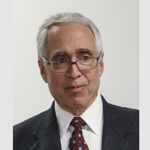Crusader at the Crossroads
Thompson also is a serious legislator. His movie-star presence, quick wit and common sense give him a compelling voice in the call for action. "The Congress has passed law after law to address these problems, but nothing ever seems to improve," he says of past government reform. "We have the tools to fix these problems, but the amount of money wasted each year just seems to grow." The sloppiness makes him wonder if anyone is even trying.
Thompson has plenty of reasons to go home. Democrats now control the Senate and are almost certain to strengthen their majority in the 2002 mid-term elections.
Moreover, short of some unanticipated disaster, George W. Bush will run for re-election in 2004, which means that Thompson will have to wait for 2008 to mount his own run for the presidency. Had Gore won the 2000 election, Republicans already would be coalescing around Thompson as a front-runner for 2004. He has all the populist credentials of Sen. John McCain, R-Ariz., without the temper and quirkiness.
Thompson no doubt is tired of talking about government failure, too. Two years ago, he identified $19 billion that federal agencies had misplaced. This year, he found another $25 billion. The names and agencies may change, but the stories remain the same. Medicare still pays for services provided to dead people and the Internal Revenue Service continues to send refunds to citizens who owe back taxes. The federal "high risk" list of programs most vulnerable to mismanagement has grown from 14 in 1990 to 23 today, with eight of the original 14 still on the list.
Despite the allure of a few years off the treadmill, Thompson would make a mistake in leaving the Senate. For starters, he's going to find being in the minority party a lot more fun than he thinks. He now can range far and wide on national policy issues, using the Senate to kick up dust on everything from national security to prescription drugs.
It also is entirely possible that Vice President Dick Cheney will step down from the Republican ticket in 2004, opening the job for Thompson. Bush is not likely to forgive McCain for his flirtations with the Democrats, and Secretary of State Colin Powell has already had his chance. That leaves Thompson and a host of lesser pretenders, none of whom has his star quality or campaign ability. Most importantly, Thompson still has work to do in Washington. He laid out at least part of that work in a sharp-edged report released the day before he handed over the reins of the Governmental Affairs Committee to the new Democratic majority. Calling the level of federal mismanagement "shocking," he listed the government's top 10 failures; they included $12 billion in Medicare waste, health and safety issues at the nation's 172 veterans hospitals, mission failures at NASA, and financial discrepancies at the IRS and the Defense Department.
Thompson's report, "Government at the Brink," did more than just inventory the problems, however. It also provided an easily accessible analysis of causes and solutions, most notably the projected retirement of between a third and a half of the federal workforce. Unless the federal government figures out a way to get the right employees both hired and motivated, Thompson argues, the federal government will start to feel the pinch of poor performance in every corner, from mishandled Social Security checks to ever-lengthening delays at every point of citizen service.
The Bush administration promptly minimized the public service recommendations by announcing that federal agencies already have all the authority they need to solve 80 percent of the problems, thereby confirming both Thompson's frustration and his need to stay put. Offering debt forgiveness, signing bonuses and faster hiring hardly matters if talented citizens aren't interested in the first place. The big problem in the federal workforce is not a lack of authority to recruit and retain talented employees, but a lack of talented people willing to apply and stay.
Thompson hardly is the only senator who cares about rebuilding the public service, but he is one of the most visible. Working with a growing coalition of highly motivated committee members, he could be the real difference in leading the desperately needed reshaping of government. He should stay long enough to make that happen.
Paul C. Light is vice president and director of governmental studies at the Brookings Institution and senior adviser to the Presidential Appointee Initiative.
NEXT STORY: Whacking at Bloat







